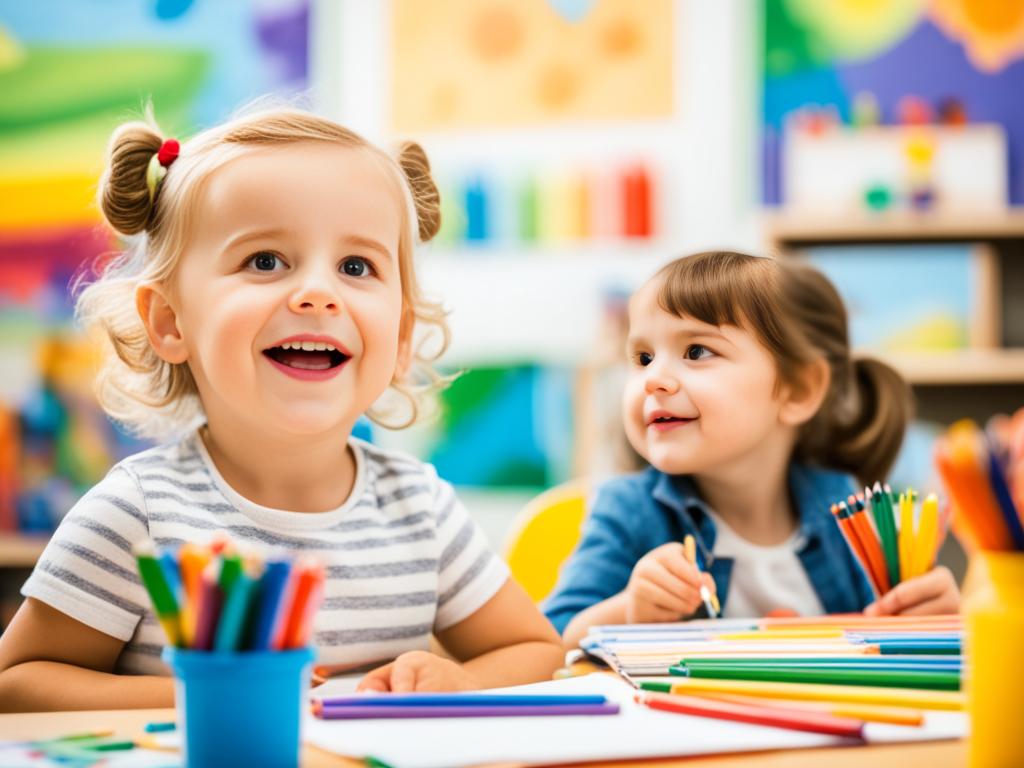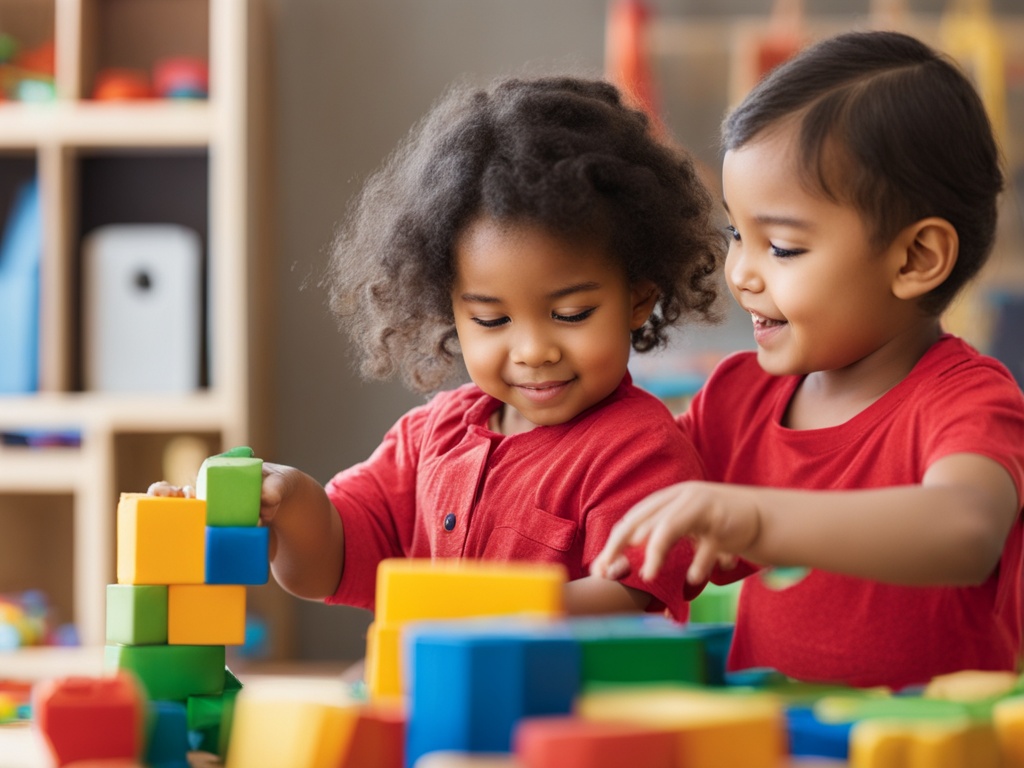
Early Childhood Education: Importance, Benefits and Programs
Early childhood education is key to a child’s growth. It shapes their thinking, social skills, and feelings. This stage sets the stage for their future in school and life.
This article looks at why early childhood education matters. We’ll see how top preschool and kindergarten programs help kids. We’ll also cover the different types of early childhood education programs out there. Each one has its own way of helping kids learn and grow.

Knowing how important early childhood education is, we can all work together. Parents, teachers, and leaders can make sure every child gets the help they need to do well in school.
Understanding the Significance of Early Childhood Education
Early childhood education is key to shaping young minds. Moreover, it sets the stage for future success. During these early years, kids grow fast in many ways. Consequently, this makes it a key time for learning and growing.
Shaping Young Minds: The Crucial Years
The first years of life are vital for brain growth and learning. Furthermore, quality preschool and kindergarten programs help a lot. As a result, they make a big difference in how well kids think, solve problems, and do in school.
Nurturing Cognitive and Social Development
A great learning environment that uses play-based learning boosts cognitive and social development. Kids learn important skills like talking, working together, and understanding feelings. These skills help them do well in school and life.

By understanding the big role of early childhood education, teachers and leaders can make sure all kids get what they need. This helps kids reach their full potential.
Early Childhood Education: Paving the Way for Success
Early childhood education is key to setting kids up for success. Not only that, it helps with both their school and personal growth. In addition, preschool and kindergarten programs boost cognitive and social skills. Therefore, they prepare kids for future learning.
These early years are crucial for a child’s future. They build a love for learning and teach important concepts. This makes moving to elementary school easier and helps with reading, writing, and thinking.
It’s also important to use educational toys and hands-on activities. These make learning fun and help kids think critically and solve problems. These skills are key in school and life.
Investing in early childhood education, kindergarten readiness, and school preparation helps kids succeed. It gives them the tools they need to do well. This prepares a generation of confident, adaptable learners ready to face the world.

Early childhood education is vital for lifelong learning and growth. It focuses on cognitive and social-emotional skills. By valuing these years, we make sure our kids are ready for school and life.
The Power of Play-Based Learning
In early childhood education, play-based learning is key. Indeed, it lets kids learn best through fun, hands-on activities. Moreover, these activities spark their curiosity and creativity. By adding play into the classroom, teachers help kids develop a love for learning and grow in all areas.
Unleashing Creativity and Imagination
Play-based learning lets kids explore, try new things, and show who they are. Through play, they get better at solving problems, talking to others, and being creative. This way, they use their natural wonder to learn about the world in a fun way.
Hands-On Experiences for Holistic Growth
In play-based learning, kids do lots of hands-on activities. These help with their growth and make learning fun. From building with blocks to playing in a pretend kitchen, these activities help kids grow physically, think better, and get along with others. This helps them grow in all areas, getting ready for school and life.
By focusing on play-based learning, teachers make learning fun and engaging. This method boosts creativity and imagination. It also helps kids keep loving to learn throughout their lives.

Preschool Programs: Laying the Foundation
Preschool programs are key in building a strong educational base for young kids. They offer a caring place where kids grow in thinking, social, and emotional skills. With a well-planned curriculum, preschools make sure kids learn important things in fun ways.
What makes preschools work is their curriculum. Teachers blend important school subjects like reading and math with hands-on activities. This method sparks kids’ curiosity and teaches them important skills like solving problems, talking, and working together.
Great teachers are crucial to preschool success. They are well-trained and care deeply about their students. They build strong bonds, help each child learn at their own pace, and show how much they love learning. This helps kids develop a deep love for learning that lasts a lifetime.
FAQ
What is the importance of early childhood education?
Early childhood education is key to shaping young minds. It helps with thinking, social, and emotional growth. Quality preschool and kindergarten programs lay the groundwork for future success. They boost skills, creativity, and overall growth in young children.
How does early childhood education benefit child development?
Early childhood education supports young children’s growth in many ways. It offers activities and environments that help kids learn important skills. These include solving problems, thinking critically, and understanding others, which are vital for success later on.
What are the different types of early childhood education programs?
There are many early childhood education programs, each with its own way of teaching and learning. You can find play-based preschools, Montessori schools, Reggio Emilia-inspired programs, and traditional kindergartens. Each type has its own curriculum and setting to meet the needs of young students.
How do play-based learning approaches benefit early childhood education?
Play-based learning is great for young children. It lets them explore and learn through fun activities. This approach boosts creativity, imagination, and overall growth. It gets kids ready for the challenges and chances they’ll face in school later.
What role do preschool programs play in a child’s educational journey?
Preschool is a big step in a child’s education. It sets the stage for learning with age-right curriculum and play. Teachers in preschool create places that are both fun and learning-focused. They help kids get ready for kindergarten and all that comes after.



Early childhood education boost the creativity of children make prepared for kindergarten and other levels of education at an early stage
I couldn’t agree more on the importance of early childhood education! It sets the foundation for a child’s future success